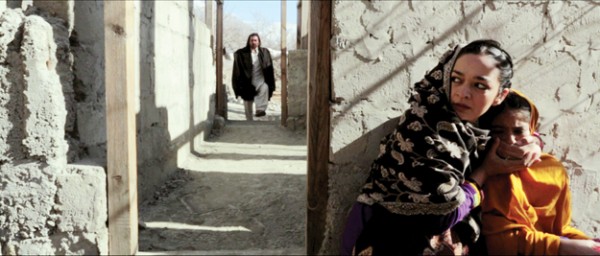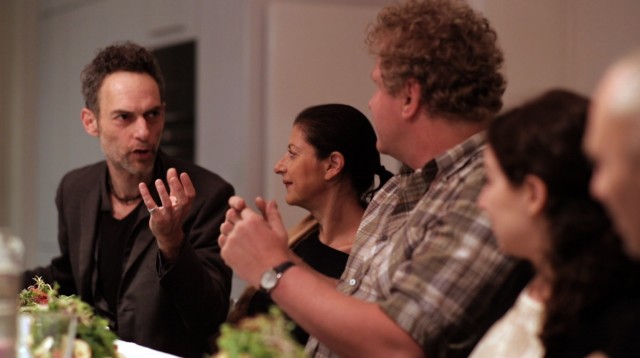
Documentary explores how Germans are dealing with their Nazi past and why so many Jews are moving to the country
GERMANS AND JEWS (Janina Quint, 2015)
Cinema Village
22 East 12th St. between University Pl. & Fifth Ave.
Opens Friday, June 10
212-529-6799
germansandjews.com
www.cinemavillage.com
 Janina Quint’s debut feature documentary, Germans & Jews, explores an intriguing premise: why so many Jews are moving to Germany, either returning to their homeland or living there for the first time. However, director and producer Quint, a non-Jewish German, and producer and executive producer Tal Recanati, an American-born Jew raised in the U.S. and Israel, reduce the film to random cocktail-party chatter; in fact, far too much of Germans & Jews takes place at a dinner party as second-generation Germans and Jews ramble on about guilt, responsibility, education, forgiveness, and how Germany has changed since WWII. The film would have benefited from more speakers like German-born American historian Dr. Fritz Stern and Thorsten Wagner, a Danish-German historian and grandson of a Nazi sympathizer, who are able to put the situation into fascinating perspective with a sincere intelligence. “I think it is true that most Germans now understand their past and the horror that they visited upon the world, but it’s a very hard thing,” Dr. Stern says. “And to find ways around to explain it is a natural human response.”
Janina Quint’s debut feature documentary, Germans & Jews, explores an intriguing premise: why so many Jews are moving to Germany, either returning to their homeland or living there for the first time. However, director and producer Quint, a non-Jewish German, and producer and executive producer Tal Recanati, an American-born Jew raised in the U.S. and Israel, reduce the film to random cocktail-party chatter; in fact, far too much of Germans & Jews takes place at a dinner party as second-generation Germans and Jews ramble on about guilt, responsibility, education, forgiveness, and how Germany has changed since WWII. The film would have benefited from more speakers like German-born American historian Dr. Fritz Stern and Thorsten Wagner, a Danish-German historian and grandson of a Nazi sympathizer, who are able to put the situation into fascinating perspective with a sincere intelligence. “I think it is true that most Germans now understand their past and the horror that they visited upon the world, but it’s a very hard thing,” Dr. Stern says. “And to find ways around to explain it is a natural human response.”
The film does offer insight into the effect of the 1978 Holocaust miniseries, which was shown in West Germany but not in East Germany, and takes viewers to various public art installations that serve as memorials to what happened under the Nazis. Quint does touch upon the issue of whether ordinary Germans in the 1930s turned a blind eye to what was building or really didn’t know the truth. But in the end, the work doesn’t dig deep enough, delivering little more than interesting conversations and comments from a relatively arbitrary gathering of experts and regular people. Germans & Jews opens June 10 at Cinema Village, with Quint, Recanati, and producer Maria Giacchino participating in Q&As at all 7:00 shows.
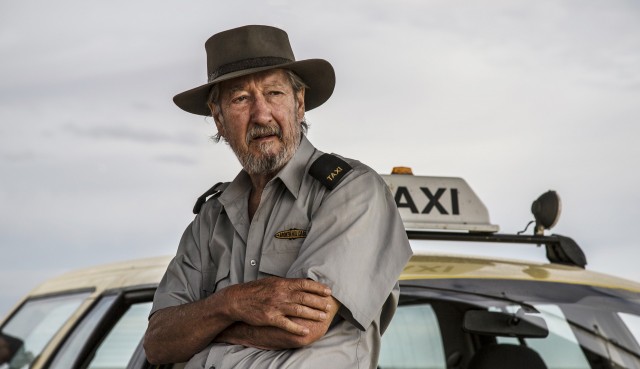
 Jeremy Sims’s Last Cab to Darwin is a poignant road-trip movie about a man determined to end things on his own terms. Australian star Michael Caton (The Castle, The Sullivans) is Rex, a grizzled, gruff cabdriver who has never been outside his small hometown of Broken Hill, a mining city in the far west of the country. In his late sixties, he has reached the point where he says and does whatever he wants in life, regardless of the consequences. But when he is diagnosed with stomach cancer and given three months to live, he decides to get in his taxi and drive nearly two thousand miles across Australia to meet with Dr. Farmer (Oscar nominee Jacki Weaver), who has just developed a controversial new assisted suicide method in Darwin that Rex wants to be the first to use. Barely acknowledging his neighbor and lover, an Aboriginal woman named Polly (Ningali Lawford-Wolf), Rex hits the road, where he eventually picks up a young indigenous hustler, Tilly (Mark Coles Smith), and a British nurse-slash-barmaid, Julie (Emma Hamilton), and the three get caught up in some crazy adventures.
Jeremy Sims’s Last Cab to Darwin is a poignant road-trip movie about a man determined to end things on his own terms. Australian star Michael Caton (The Castle, The Sullivans) is Rex, a grizzled, gruff cabdriver who has never been outside his small hometown of Broken Hill, a mining city in the far west of the country. In his late sixties, he has reached the point where he says and does whatever he wants in life, regardless of the consequences. But when he is diagnosed with stomach cancer and given three months to live, he decides to get in his taxi and drive nearly two thousand miles across Australia to meet with Dr. Farmer (Oscar nominee Jacki Weaver), who has just developed a controversial new assisted suicide method in Darwin that Rex wants to be the first to use. Barely acknowledging his neighbor and lover, an Aboriginal woman named Polly (Ningali Lawford-Wolf), Rex hits the road, where he eventually picks up a young indigenous hustler, Tilly (Mark Coles Smith), and a British nurse-slash-barmaid, Julie (Emma Hamilton), and the three get caught up in some crazy adventures.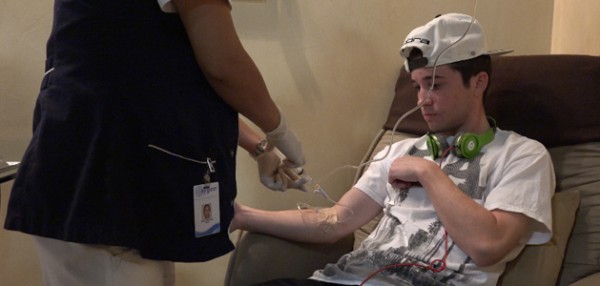
 In his 2014 documentary,
In his 2014 documentary, 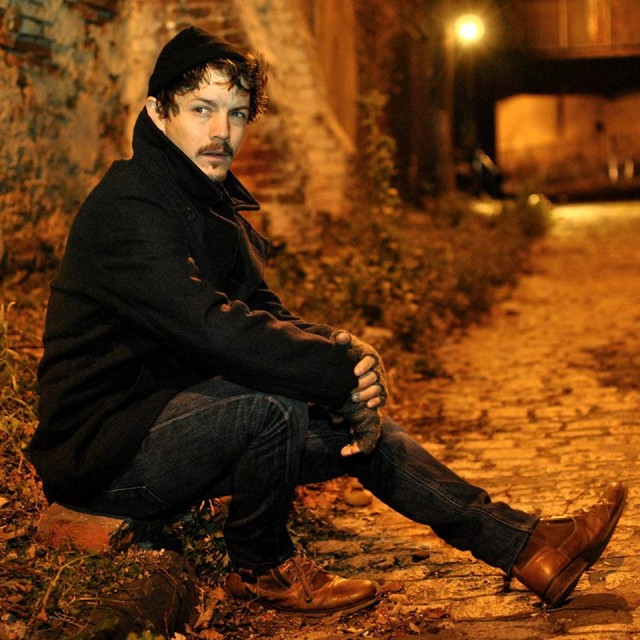
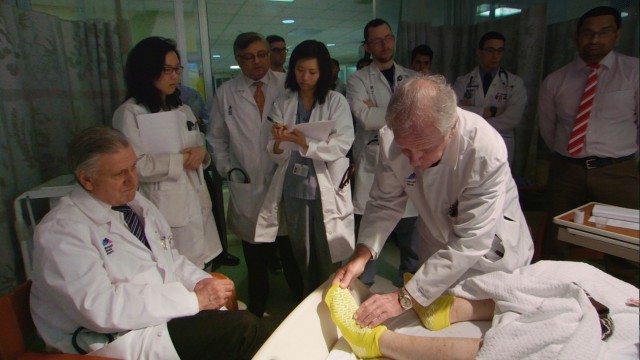
 Over the last several decades, the U.S. health care system has grown increasingly impersonal because of technological advancement, the pharmaceutical boom, and the privatization of public hospitals. But two old-time doctors at Mount Sinai Heart are keeping the human touch alive, and not just for nostalgia’s sake. Muffie Meyer’s sweet-natured, important documentary, Making Rounds, follows Dr. Valentin Fuster, the director of Mount Sinai Heart, and Dr. Herschel Sklaroff, clinical professor of medicine, cardiology, as they lead residents from room to room in the Cardiac Care Unit at New York City’s Mount Sinai Hospital, diagnosing patients with a refreshing lack of reliance on technology. “We both have the philosophy that the number one objective in medicine is the patient,” Dr. Fuster explains. “We both believe that most of what you learn about a particular patient is at the bedside, not with machines.” Dr. Sklaroff adds, “Dr. Fuster and I make rounds the old-fashioned way. The first thing that we do is go to the patient and hold his hand. With that touch you establish rapport instantly. We were trained to go to the bedside and talk to the patients, and take the perfect history, do the perfect physical, from which one ought to be able to make a diagnosis or come close to a diagnosis, maybe ninety percent of the time.” They display a warm, caring bedside manner as they talk, touch, listen, and teach, examining a sixty-seven-year-old woman with coronary heart disease, a twenty-two-year-old single mother who needs a heart transplant, and a fifty-one-year-old man with cardiomyopathy who resists treatment.
Over the last several decades, the U.S. health care system has grown increasingly impersonal because of technological advancement, the pharmaceutical boom, and the privatization of public hospitals. But two old-time doctors at Mount Sinai Heart are keeping the human touch alive, and not just for nostalgia’s sake. Muffie Meyer’s sweet-natured, important documentary, Making Rounds, follows Dr. Valentin Fuster, the director of Mount Sinai Heart, and Dr. Herschel Sklaroff, clinical professor of medicine, cardiology, as they lead residents from room to room in the Cardiac Care Unit at New York City’s Mount Sinai Hospital, diagnosing patients with a refreshing lack of reliance on technology. “We both have the philosophy that the number one objective in medicine is the patient,” Dr. Fuster explains. “We both believe that most of what you learn about a particular patient is at the bedside, not with machines.” Dr. Sklaroff adds, “Dr. Fuster and I make rounds the old-fashioned way. The first thing that we do is go to the patient and hold his hand. With that touch you establish rapport instantly. We were trained to go to the bedside and talk to the patients, and take the perfect history, do the perfect physical, from which one ought to be able to make a diagnosis or come close to a diagnosis, maybe ninety percent of the time.” They display a warm, caring bedside manner as they talk, touch, listen, and teach, examining a sixty-seven-year-old woman with coronary heart disease, a twenty-two-year-old single mother who needs a heart transplant, and a fifty-one-year-old man with cardiomyopathy who resists treatment.
